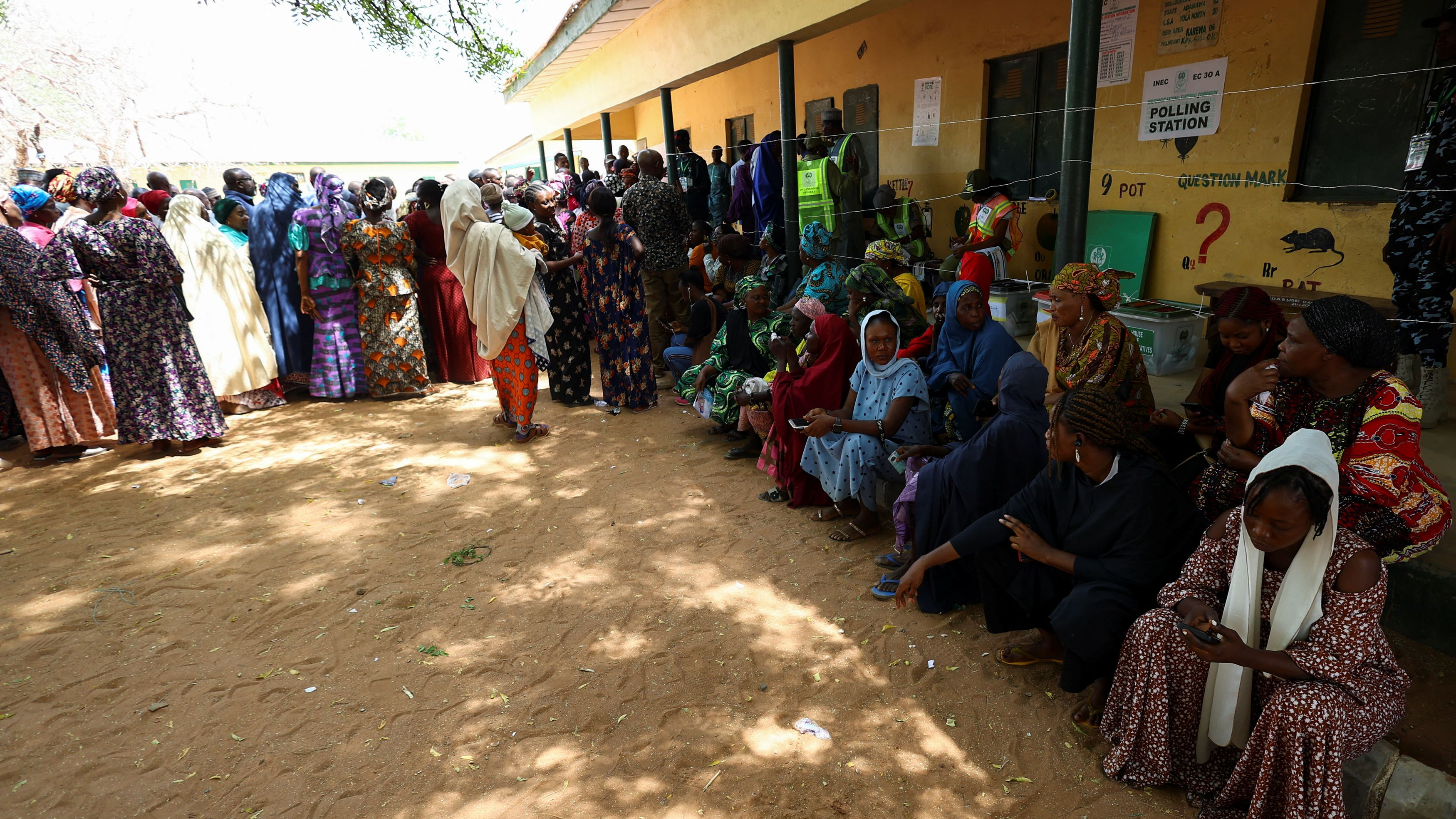
People wait to cast their ballot at a polling station, in Nigeria's presidential election, in Yola, Nigeria, February 25, 2023. /Reuters
People wait to cast their ballot at a polling station, in Nigeria's presidential election, in Yola, Nigeria, February 25, 2023. /Reuters
Millions of Nigerians headed to polls nationwide Saturday to elect a new president and lawmakers with many hoping the next leader will steer Africa's most populous nation and biggest economy on a new course.
Eighteen candidates run for the presidency seeking to succeed incumbent President Muhammadu Buhari who didn't seek re-election due to term limits.
A total of 176,600 polling stations opened between 8:30 a.m. and 2:30 p.m. (0730 GMT to 1330 GMT) but delays of opening have been reported in some areas, as well as voting machines malfunction.
A presidential candidate must receive the largest number of votes cast nationwide and at least a quarter of the vote in no fewer than 24 of the country's 36 states.
If no one clears both hurdles, the top two candidates will compete in a run-off. The constitution says the run-off must take place within 21 days of the announcement of the result.
No run-off has been necessary since the transition to democracy.
The front-runners are ruling All Progressives Congress or APC party candidate Bola Tinubu, Atiku Abubakar from the main opposition Peoples Democratic Party or PDP, and Peter Obi from the Labour Party.
For the parliamentary poll, candidates for a seat in the House of Representatives or the Senate must win a simple majority of votes in the constituency or senatorial district they are contesting in order to win.
The National Chairman of the Independent National Electoral Commission (INEC) said it does not know when the results will be ready, but they have promised to make the process speedy.
(With input from Reuters)